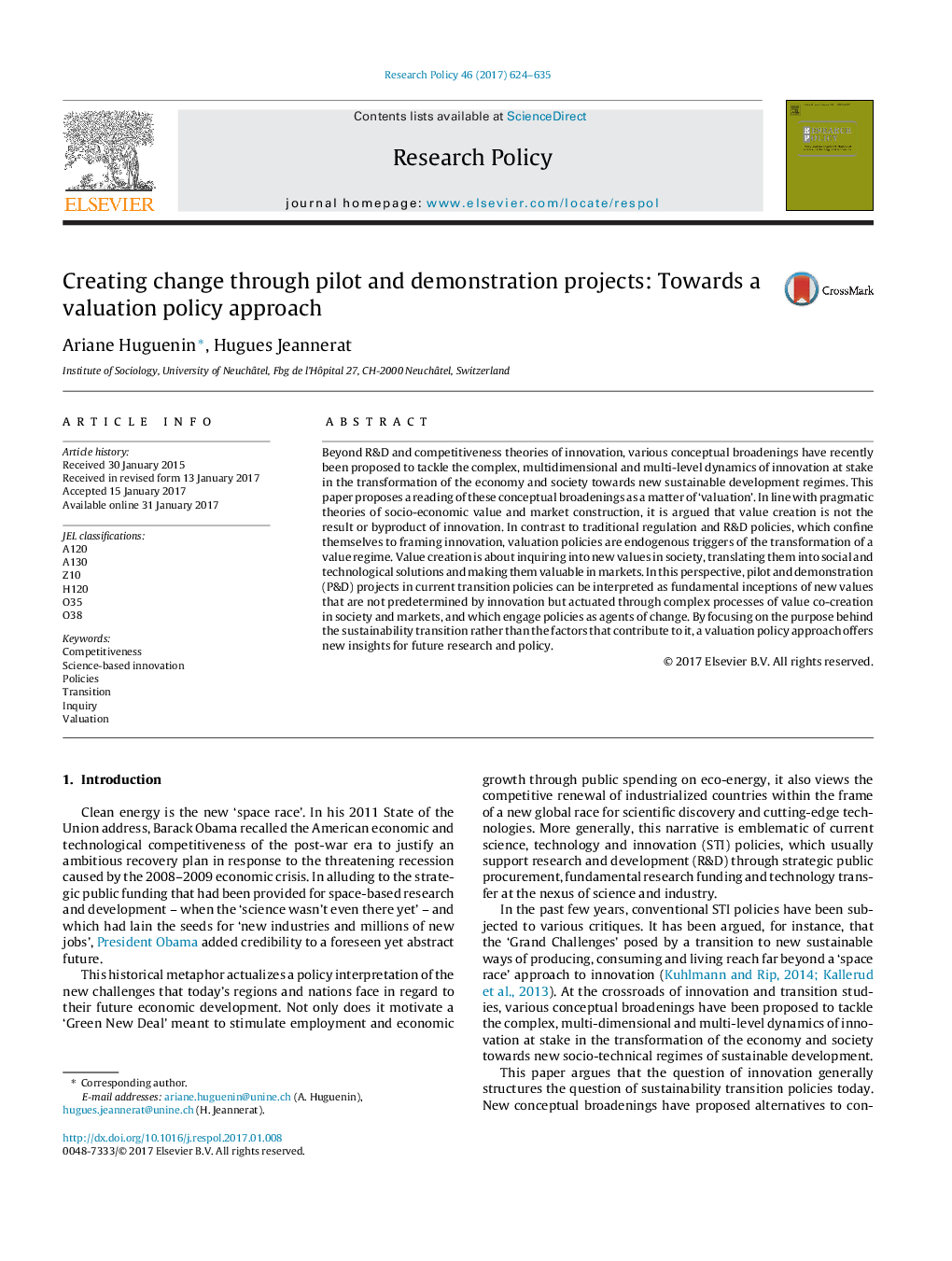| Article ID | Journal | Published Year | Pages | File Type |
|---|---|---|---|---|
| 5104016 | Research Policy | 2017 | 12 Pages |
Abstract
Beyond R&D and competitiveness theories of innovation, various conceptual broadenings have recently been proposed to tackle the complex, multidimensional and multi-level dynamics of innovation at stake in the transformation of the economy and society towards new sustainable development regimes. This paper proposes a reading of these conceptual broadenings as a matter of 'valuation'. In line with pragmatic theories of socio-economic value and market construction, it is argued that value creation is not the result or byproduct of innovation. In contrast to traditional regulation and R&D policies, which confine themselves to framing innovation, valuation policies are endogenous triggers of the transformation of a value regime. Value creation is about inquiring into new values in society, translating them into social and technological solutions and making them valuable in markets. In this perspective, pilot and demonstration (P&D) projects in current transition policies can be interpreted as fundamental inceptions of new values that are not predetermined by innovation but actuated through complex processes of value co-creation in society and markets, and which engage policies as agents of change. By focusing on the purpose behind the sustainability transition rather than the factors that contribute to it, a valuation policy approach offers new insights for future research and policy.
Related Topics
Social Sciences and Humanities
Business, Management and Accounting
Business and International Management
Authors
Ariane Huguenin, Hugues Jeannerat,
